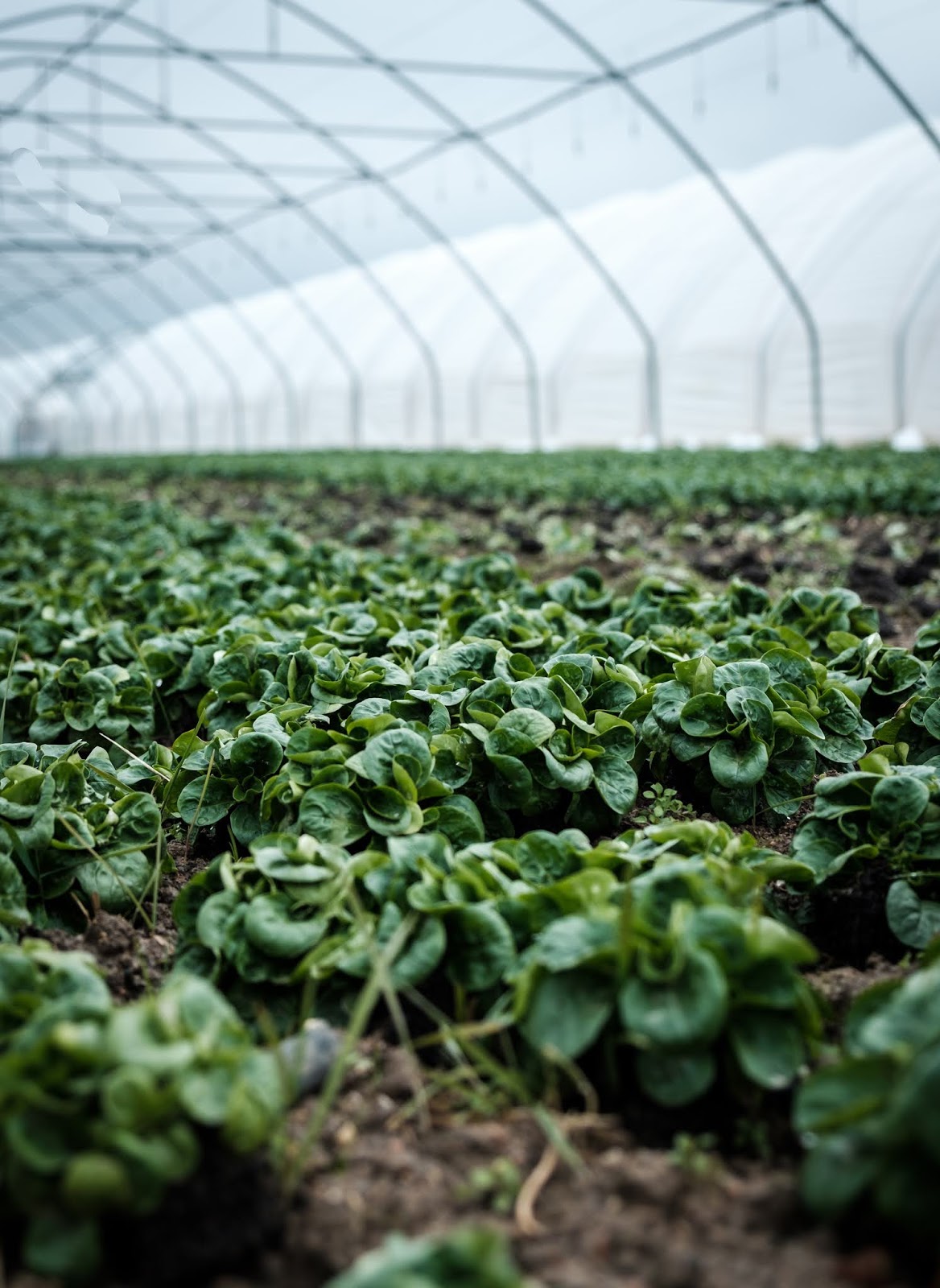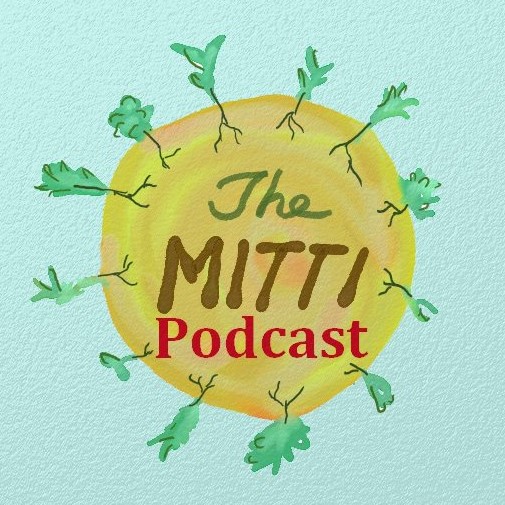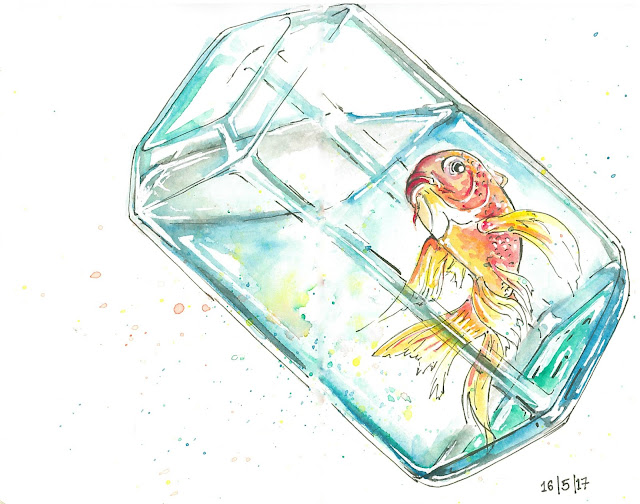The Mitti Recap
 |
| Artwork by Anuraag Nandagiri, 2017 |
The story behind our initiative is one that can be familiar and relatable to anyone. It all started with sympathy towards a social issue; in our case the deteriorating life quality of farmers, especially in India. The sympathy was the seed for a greater dream of finding simpler ways in agriculture. Ways that do not compromise the environment with chemicals, ways that do not exhaust the soil with unsustainable practices under the tag of higher yield or world hunger, and most importantly ways that do not burden a farmer’s humble pocket or threaten the livelihood of him and his family.
And that is when we started consolidating our knowledge, interests and views on agroecology on this beloved online space we call The Mitti Collective blog. We were lucky to have supportive friends and partners who reviewed our first five articles, giving us their kind feedback. In celebration to the lucky number five, we decided to dedicate this post to summarize what we have talked about so far. Keep reading till the end for an exciting announcement!!
And that is when we started consolidating our knowledge, interests and views on agroecology on this beloved online space we call The Mitti Collective blog. We were lucky to have supportive friends and partners who reviewed our first five articles, giving us their kind feedback. In celebration to the lucky number five, we decided to dedicate this post to summarize what we have talked about so far. Keep reading till the end for an exciting announcement!!
Our first blog, Agriculture is NOT Industry, reflected on the food and the often overlooked supply chain behind it. Since the 1960s, a global green revolution has changed the agricultural scene by introducing several external factors to the process, such as heavy machinery, pesticides and modified seeds. Apart from environmental considerations, the green revolution led to commercializing agriculture in a way that affected the socio-economic balance of rural communities worldwide. The grim reality of rising farmer suicides in the case of India was pivotal in forming the vision behind The Mitti Collective.
Introducing alternative agriculture methods in the first blog post led to re-examining the word ‘alternative’ in the second one. Due to various urban and cultural influences, alternative is usually translated to different, against the stream, and even sometimes rebellious. In agriculture however, the alternative is in fact how the natural has always been; in other words chemical-free and human-oriented instead of industrial and commercial. In the second blog, Alternative is Natural, we also had the pleasure to discuss the different angles to community development with Akhila, who shared her extensive experience in grassroot movements in India, informed from her rural journey in discovering ‘the forgotten temples of knowledge’ across Indian villages.
Exchanging further conversation with field practitioners, we then interviewed Franziska Weißörtel, one of the founders of the inspiring project Toranam; a model farm and a social initiative for sustainable living. Franziska guided us through Toranam’s history, mission and future ambition. One of the main takeaways of our interview is the collaborative approach to community development, where the innovators and the community are a partnership. The project has proved how multicropping offers a range of ecological benefits such as preventing the soil from nutrient exhaustion, ground water toxicity and erosion.
In Seed to Food Sovereignty, we offered you a slice of our daily life and how we think about agriculture only to realize how little we know about it! For instance, although it is theoretically taken for granted that seeds are the source of life, there are innumerable questions that can come up about that: How to plant a seed? Do all crops propagate through seeds? Do all seeds germinate? And whether this means one can become self-sufficient by collecting and planting seeds from the produce bought from a supermarket? The answer was a little complex and this blog entry tried to approach it while encountering topics such as modified seeds, hybrid plant varieties and food sovereignty.
In our latest blog Why Enterprise Nonprofits? we presented what we learned from the online course “Entrepreneurship in Nonprofits”, offered by the CEPS at the University of Basel, Switzerland. The reason is that The Mitti Collective sees its future on practical grounds. However, in order to achieve a social mission it is important to identify the framework most suitable. In the blog post we introduce the different forms of social organizations, with a focus on social enterprises. Nonprofits are the go-to structure when addressing a social need, nonetheless it has its own limitations. A social enterprise provides a nonprofit with growth opportunities that are otherwise discarded. Find out more through the blog and this infographic.
Introducing alternative agriculture methods in the first blog post led to re-examining the word ‘alternative’ in the second one. Due to various urban and cultural influences, alternative is usually translated to different, against the stream, and even sometimes rebellious. In agriculture however, the alternative is in fact how the natural has always been; in other words chemical-free and human-oriented instead of industrial and commercial. In the second blog, Alternative is Natural, we also had the pleasure to discuss the different angles to community development with Akhila, who shared her extensive experience in grassroot movements in India, informed from her rural journey in discovering ‘the forgotten temples of knowledge’ across Indian villages.
Exchanging further conversation with field practitioners, we then interviewed Franziska Weißörtel, one of the founders of the inspiring project Toranam; a model farm and a social initiative for sustainable living. Franziska guided us through Toranam’s history, mission and future ambition. One of the main takeaways of our interview is the collaborative approach to community development, where the innovators and the community are a partnership. The project has proved how multicropping offers a range of ecological benefits such as preventing the soil from nutrient exhaustion, ground water toxicity and erosion.
In Seed to Food Sovereignty, we offered you a slice of our daily life and how we think about agriculture only to realize how little we know about it! For instance, although it is theoretically taken for granted that seeds are the source of life, there are innumerable questions that can come up about that: How to plant a seed? Do all crops propagate through seeds? Do all seeds germinate? And whether this means one can become self-sufficient by collecting and planting seeds from the produce bought from a supermarket? The answer was a little complex and this blog entry tried to approach it while encountering topics such as modified seeds, hybrid plant varieties and food sovereignty.
In our latest blog Why Enterprise Nonprofits? we presented what we learned from the online course “Entrepreneurship in Nonprofits”, offered by the CEPS at the University of Basel, Switzerland. The reason is that The Mitti Collective sees its future on practical grounds. However, in order to achieve a social mission it is important to identify the framework most suitable. In the blog post we introduce the different forms of social organizations, with a focus on social enterprises. Nonprofits are the go-to structure when addressing a social need, nonetheless it has its own limitations. A social enterprise provides a nonprofit with growth opportunities that are otherwise discarded. Find out more through the blog and this infographic.
It has been an exciting journey to share our interests in these posts, and we are looking forward to exploring more and more topics with you. We thank all our readers from Germany, India, Spain, France, the USA, Colombia and Switzerland.
With a sense of excitement, we are now very pleased to introduce a podcast parallel to the blog, where we not only talk about agriculture, but also the culture that has developed around it!
With a sense of excitement, we are now very pleased to introduce a podcast parallel to the blog, where we not only talk about agriculture, but also the culture that has developed around it!
To keep up with our future posts do subscribe to our blog. You can also connect with Anuraag on his Linkedin for more regular update.





